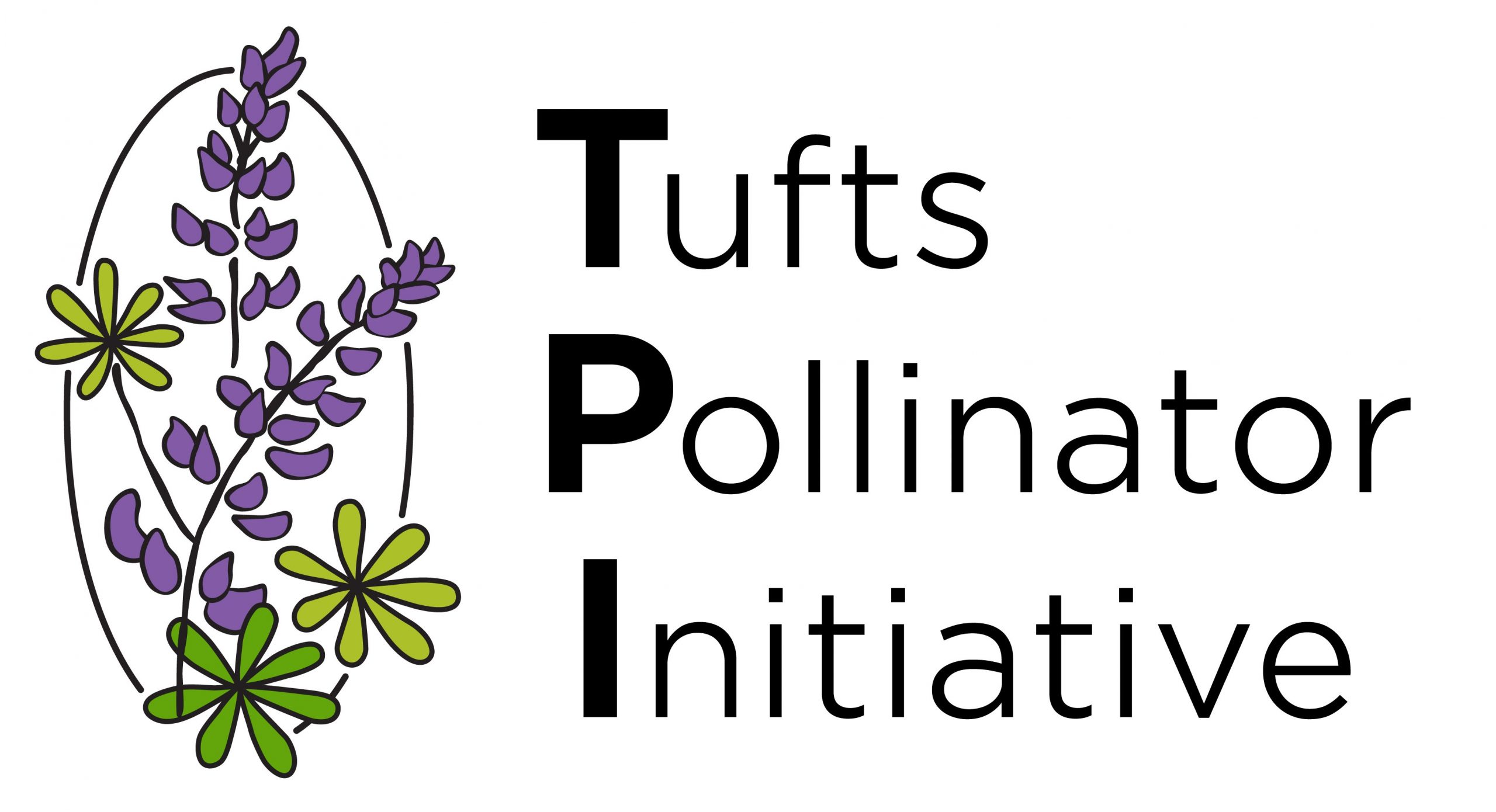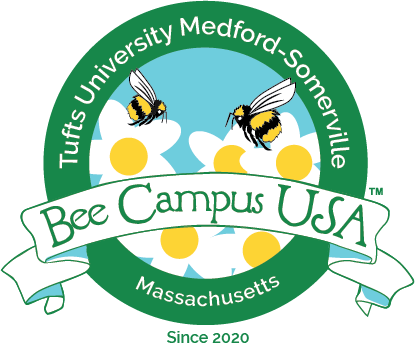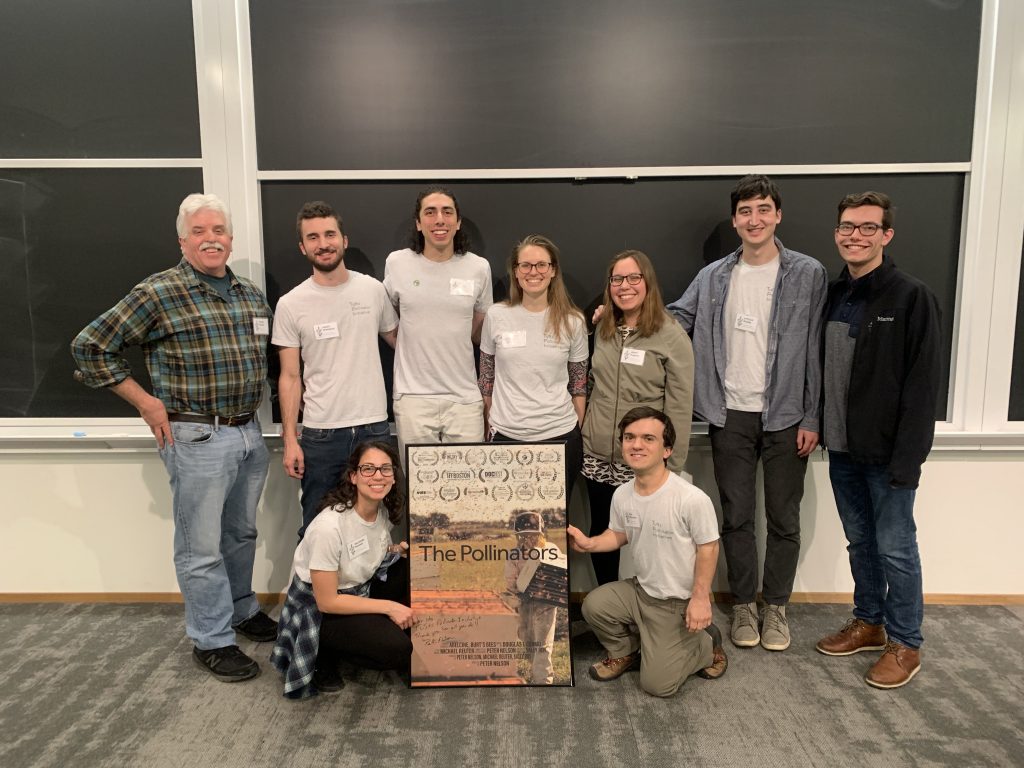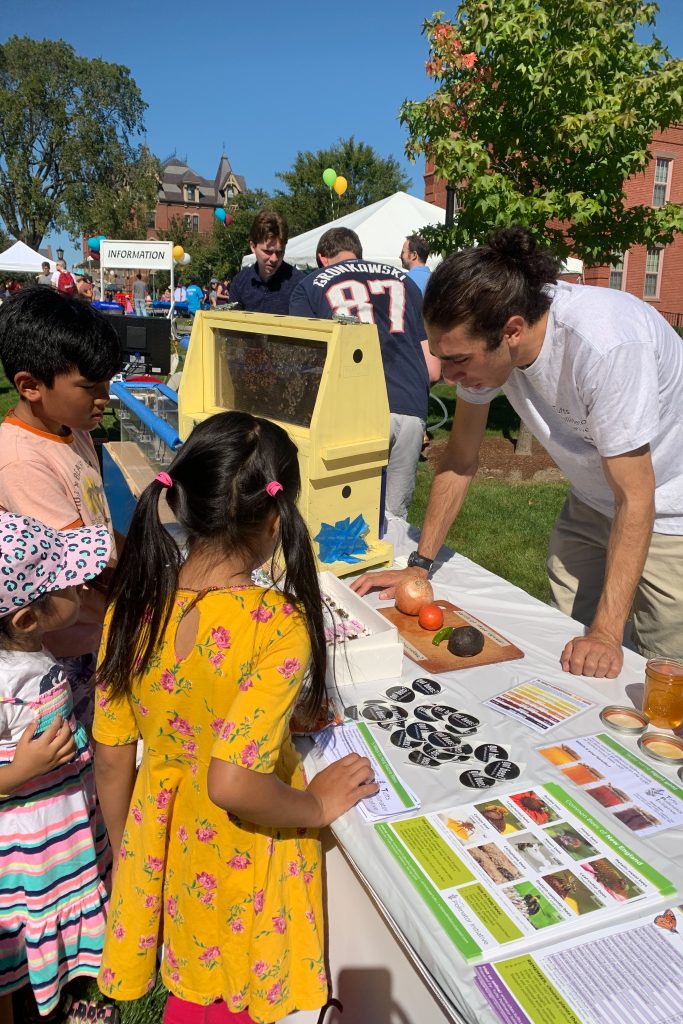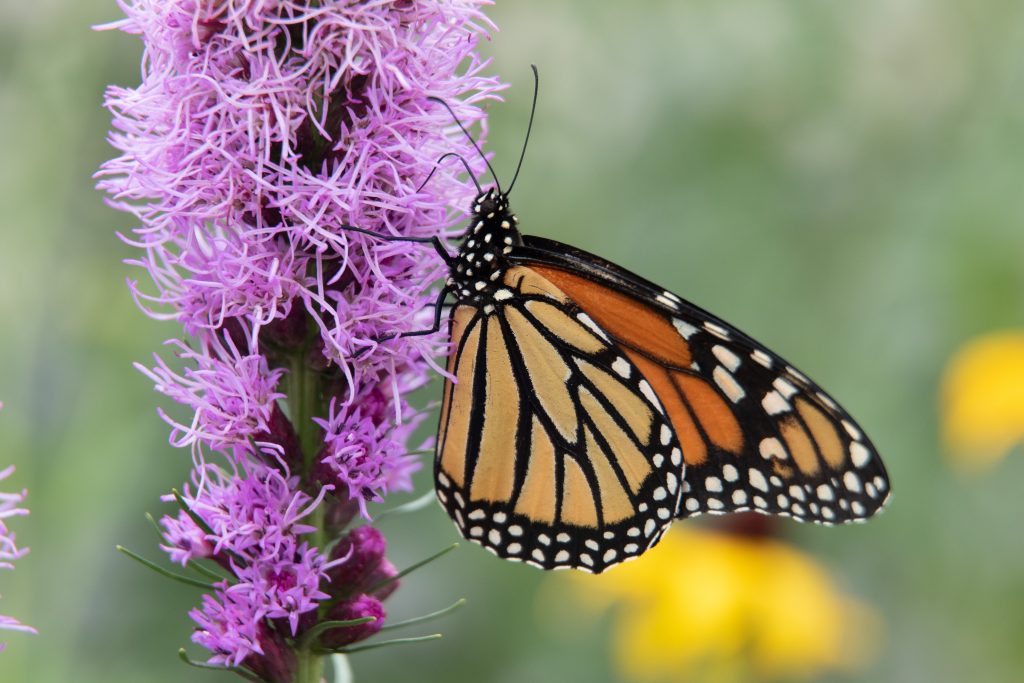Have you ever wondered what kinds of pollinators like to visit urban gardens? My work this summer can help answer that question! My name is Maria Ostapovich, and I am currently a first year Master’s student at Tufts and a new member of TPI. Since the beginning of July, I have been surveying pollinators in gardens around Somerville, MA to understand 1) which pollinators occur in urban gardens and 2) which flowering plants those pollinators depend on. I surveyed pollinator-friendly gardens and ornamental gardens to see how they compared to one another.
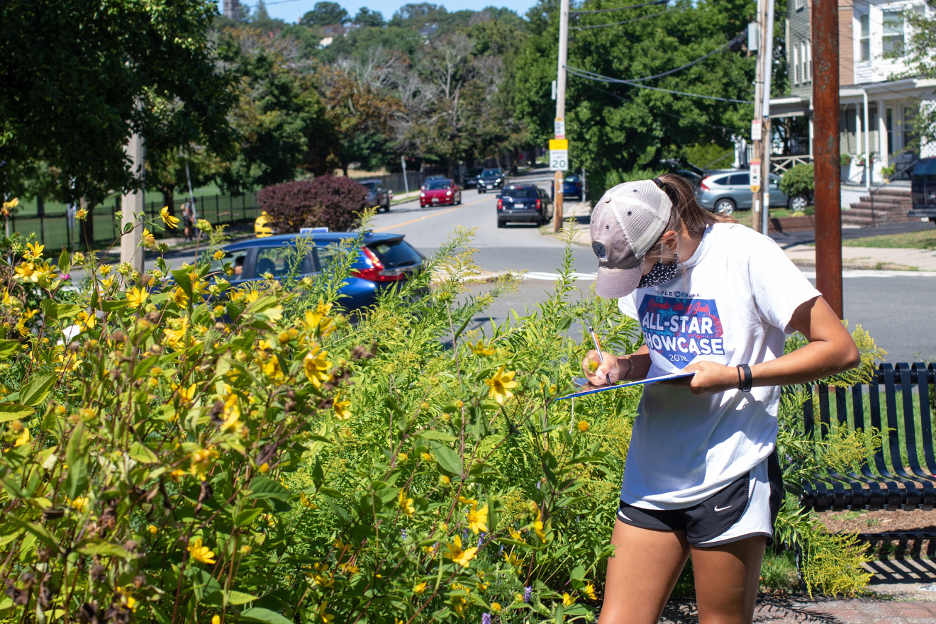
Surprisingly, it was difficult to find public gardens (within walking distance) to survey during this project. The eight suitable gardens I found seemed like unlikely homes for pollinators: a busy bike path, a yard next to a construction site, and the middle of a rotary. But after my first survey, the opposite proved true. In the middle of the city, flowers everywhere were brimming with pollinating bees, wasps, hover flies, and butterflies.
Twice per week, I surveyed all eight gardens on foot. I made sure to pack plenty of water and wear comfortable shoes for my trek through Somerville and, by the end of each six-hour survey, I had invariably logged 10,000 steps. At each garden, I identified each flowering species of plant and counted the number of blooms. Then, I identified and counted the number of pollinator species that visited flowers, noting which species of plant they visited over 10 minutes.
First, I found that not all plants are equally attractive to pollinators. Commonly planted ornamental plants like day lilies and hostas did receive some insect visits, but native plants consistently outshone them. The white candelabras of culver’s root were particularly attractive to pollinators in June and July; cutleaf coneflower was a favorite of sweat bees and long-horned bees; and goldenrod stole the show in the fall. Native plants, clearly, were a favorite of pollinators in Somerville.
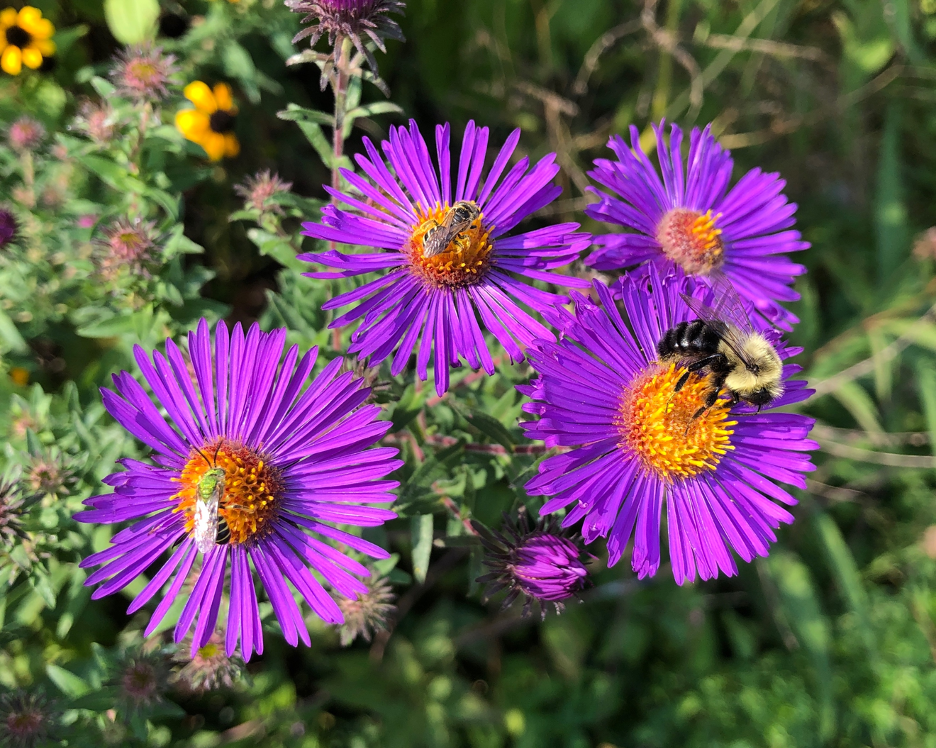
Overall, the insect diversity that I observed was incredible. I found insects ranging from fuzzy, clumsy bumblebees to indecisive, metallic green sweat bees. I observed cute little leaf-cutter bees holding their abdomens aloft and I saw formidable (yet harmless!) great black digger wasps. Among many other pollinators, I saw long-horned bees quickly zipping between flowers and several convincing bee-mimics including a hover fly (Spilomyia longicornis) that looks nearly identical to a European paper wasp. Surprisingly, I observed few butterflies during my surveys, perhaps a result of unfavorable conditions earlier in the year.
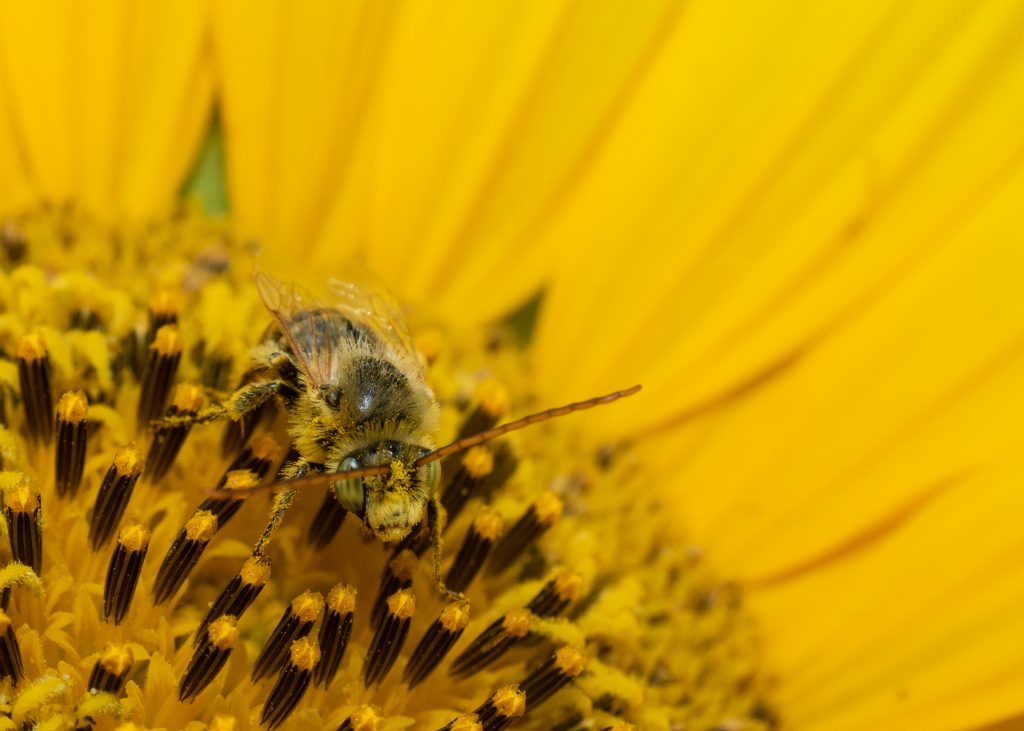
I learned so much this summer, most notably how to identify urban plants and pollinators! For any tips for identifying pollinators on your own, check out TPI’s identification guides. While it was fun to learn how to identify so many species, it was even more exciting to see what kinds of plant-pollinator interactions took place across these gardens. Although the data analysis is still ongoing, I will be able to generate lists of plants that pollinators like and dislike as well as document the weeks of the year during which plants are flowering and pollinator species are most active. These findings will be coming soon after I complete my surveys (which are continuing until frost reaches Somerville) and after I learn the best way to analyze my data. Make sure to keep an eye out for additional blog posts sharing more of my findings!
To learn more about our ongoing efforts to document urban pollinator biodiversity, get in touch with us through social media or tuftspollinators@gmail.com!
